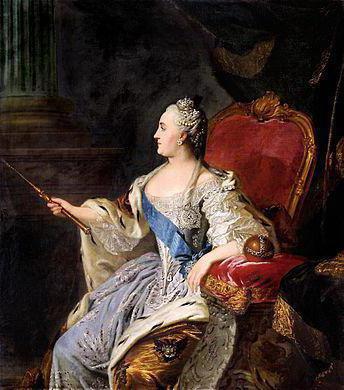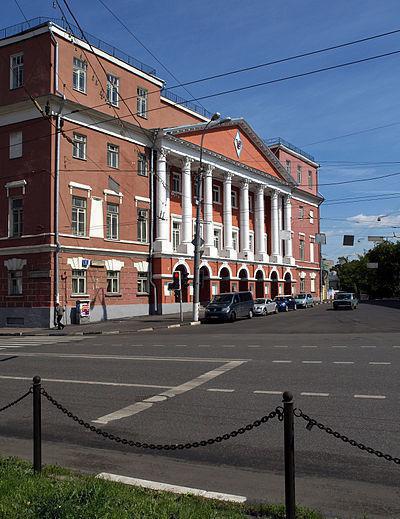Musin-Pushkin A.I. (1744-1818) - a well-known collector and collector of ancient Russian documents and ancient manuscripts, as well as material monuments. His work had a great influence on the development of domestic historical science in the second half of the 18th century, when Russian scholars and researchers developed a serious interest in scientific research regarding the past of our country.
Count's activity in the context of the era
Aleksey Musin-Pushkin was a typical representative of the Catherine’s era, when in the circles of the intelligentsia there was an interest in collecting, publishing old Russian manuscripts. In addition to the count himself, many other scientists were also fond of collecting ancient monuments. The reign of Catherine II is a period of enlightenment in our country, when among educated circles the conviction that it was necessary to study the past of Russia spread.

Many intellectuals were dissatisfied with the dominance of foreign ideas, the fascination of a significant part of scientists with Western European science and the fashion to imitate everything foreign. As a contrast, among a number of lovers of antiquity, the belief arose that it was necessary to carefully study, and most importantly, to popularize national antiquity in the eyes of the population in order to instill in readers the idea of the originality and national identity of Russian history. The dominance of these ideas predetermined the Count's fascination with the collection of ancient documents and manuscripts.
Briefly about the life of the count
Musin-Pushkin's biography is interesting in the sense that it clearly shows how, while not being a professional historian, he nevertheless made a significant contribution to the development of this science. He was born in the family of the captain of the guard, he graduated from the artillery school, which did not prepare him for classes in Russian history. He served as an adjutant with G. Orlov, and when he retired, he went on a trip abroad, during which he visited a number of European countries. Upon his return to Russia, he took the position of master of ceremonies. Over the years, he served in a wide variety of government agencies, including was the Chief Prosecutor of the Synod. In the last years of his life he lived in Moscow, where he continued his fruitful activity of collecting antiquities.
Features of scientific research
Musin-Pushkin was fond of ancient monuments and manuscripts. In this regard, his activity should be considered in line with the publishing activities of other such prominent large and prominent archivists as Bantish-Kamensky, Novikov, Rumyantsev, etc. They all sought to maximize the popularization of Russian antiquity and contrast it with Western European influence, which then dominated the scientific sphere and scientific works. In their opinion, only the study of ancient Russian sources could contribute to understanding the originality of the historical process in Russia, and also helped to understand the differences between its path and the countries of Western Europe.

Musin-Pushkin, acting quite in the spirit of his time, paid great attention to collecting manuscripts. His goal was purely enlightening: to acquaint the scientific community and just the reading public with ancient monuments. A feature of his scientific research was that he collected everything that was somehow related to antiquity, realizing that any source could be of great importance for patriotic education.
Collecting vintage documents
Without exaggeration, we can say that Musin-Pushkin acted on a grand scale. The fact is that the high official posts held by him in different years gave him great opportunities for collecting and storing valuable monuments. Of particular importance was the time when he was the chief prosecutor of the Synod. At his insistence, Catherine II in 1792 issued a special decree providing for the removal from the monastery archives of ancient chronicles, their lists and ancient literary monuments.
Thus, manuscripts of unique significance were discovered: the most ancient list of the Initial Chronicle Lavrentievsky, one of the original lists of Russian Truth and other valuable documents. In the provinces, Musin-Pushkin had special agents for the purchase of ancient papers. In addition, many bibliophiles, knowing about the count’s passion for collecting manuscripts, began to transfer their copies to him; even Catherine II herself did not stand aside, who also handed him part of her manuscripts.
The most significant discoveries
Count Musin-Pushkin is primarily known for the fact that he is the one who holds the honor of opening the Old Russian monument "The Word of Igor's Campaign". It is in connection with the latter circumstance that his name is probably known to every student. The collector himself immediately realized the significance of his find and hastened to publish this unique source. Fortunately, in this way this monument was preserved and made available to the general public. This was a very timely measure, since the unique collection of the archivist burned down during the Moscow fire in 1812 during the invasion of Napoleon. Many other valuable antiquities perished in the fire.
Musin-Pushkin Alexey Ivanovich discovered for researchers such unique sources as the Royal Book and the Nikon Chronicle. This was a very important discovery, because just at that time many domestic historians turned to writing fundamental works on the history of Russia, and many of them used the materials of the graph.
Publishing
Fans of Russian antiquity not only searched, but also published their original finds. Their goal was, as mentioned above, to familiarize the reading public with ancient Russian history. Therefore, the publication of monuments was of fundamental importance in their educational activities.
A strict scientific study of the annals and manuscripts was not part of their task, however, when publishing the sources, the compilers of the collections accompanied these or those sources with valuable comments and remarks that have not lost their significance today. Characteristic is the fact that Musin-Pushkin, as well as other publishers, did not fundamentally put their authorship in the compilation of collections, thus trying to completely concentrate the reader's attention on the document.
These publications clearly trace the purpose of publishing. Musin-Pushkin, in his remarks on published chronicles, often complains that the intelligentsia is too passionate about foreign scientific achievements and neglects ancient Russian history.
Other activities
In addition to collecting ancient sources, Alexey Ivanovich was engaged in scientific and administrative activities. He was a full member of the Academy of Sciences and took part in the compilation of the dictionary. But one of his most fruitful works was the work of the Academy of Arts. He collected the work of European masters, with his assistance, a class was opened on engraving the landscape. He attracted many famous people to this institution, such as Shubin, Kozlovsky and others.
Musin-Pushkin maintained contacts with such famous and prominent scientists of his time as Bantysh-Kamensky, Karamzin, Boltin, Dubrovsky. They willingly used his manuscripts when writing their works.
The value of the work of the graph in the development of domestic historiography
The activities of Alexei Ivanovich should be seen in the context of the era. At this time, as mentioned above, many scholars seriously engaged in the publication of ancient Russian sources. In this regard, the name of the count can be put on a par with such major archival experts as Bantish-Kamensky and Novikov.
His findings are invaluable for studying the history of the past country, which is proved by the fact that the largest historians used his findings in the compilation of their fundamental works. The photo of Musin-Pushkin shows us that he was not only a very influential nobleman of his time, but also a very intelligent, intelligent and educated person.